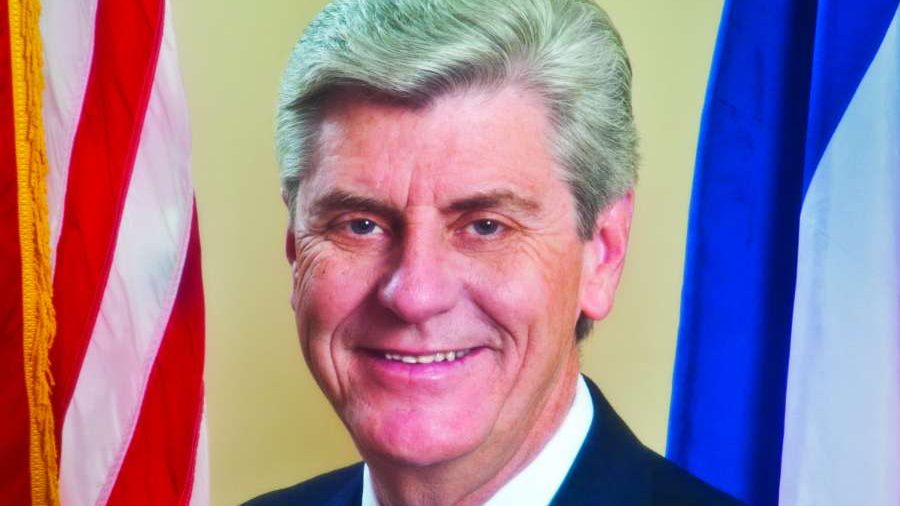An effort to ban most abortions from 15 weeks into pregnancy will head to the U.S. Supreme Court, the Mississippi governor has said after a federal appeals court upheld a ruling that blocked the law.
“We will sustain our efforts to fight for America’s unborn children,” Republican Gov. Phil Bryant said on Twitter Dec. 13. “Mississippi will continue this mission to the United States Supreme Court.”
Due to changes in the makeup of the U.S. Supreme Court, both foes and supporters of legal abortion anticipate any decision on abortion could overturn or significantly modify existing precedent that, with few restrictions, mandates legal abortion across the U.S.
In a decision published Friday, however, Judge Patrick Higginbotham of the New Orleans-based 5th U.S. Circuit Court of Appeals sided with foes of the Mississippi law in citing existing precedent dating to 1973.
“In an unbroken line dating to Roe v. Wade, the Supreme Court’s abortion cases have established (and affirmed, and re-affirmed) a woman’s right to choose an abortion before viability,” he said in the ruling. “States may regulate abortion procedures prior to viability so long as they do not impose an undue burden on the woman’s right but they may not ban abortions.”
The decision upheld U.S. District Court Judge Carlton Reeves’ November 2018 ruling against the law. Reeves had said it is “established medical consensus” that the viability of the unborn baby, the point at which he or she can live outside the womb, typically begins 23 to 24 weeks into pregnancy.
The law allows abortions after 15 weeks of pregnancy only when the mother’s life or a major bodily function is in danger, or when the unborn child has a severe abnormality and is not expected to be able to live outside the womb at full term. Exceptions are not granted for pregnancies resulting from rape or incest. Physicians who knowingly violate the law can lose their state medical license.
Bryant signed the legislation in March 2018, saying, “I am committed to making Mississippi the safest place in America for an unborn child, and this bill will help us achieve that goal.”
The Catholic bishops of Mississippi had praised the law’s protections for unborn human life.
In defending the law, the state’s attorneys argued that it has an interest in protecting the life of the unborn, as well as maternal health. They pointed to an increased risk of complications for the mother when abortion is performed further into the pregnancy. They have also made a case that unborn babies are capable of feeling pain prior to viability.
Attorneys representing the state had argued that the law was a regulation, not a ban, and argued that the states had the right to regulate abortion, the Associated Press reports.
The law was challenged by the Center for Reproductive Rights, which represented the only abortion clinic in Mississippi: Jackson Women’s Health Organization, which performs abortions up to 16 weeks, the Associated Press reports.
The pro-abortion rights group argued that the Supreme Court has held that states may not restrict abortion before the unborn baby is viable.
Hillary Schneller, senior staff attorney at the Center for Reproductive Rights, said the appeals court “recognized today what is obvious: Mississippi’s abortion ban defies decades of Supreme Court precedent.”
“With this ruling, Mississippi — and other states trying to put abortion out of reach — should finally get the message,” she said, according to the Associated Press.
Bryant will leave office in January. His successor, Republican Lt. Gov. Tate Reeves, also opposes abortion. Almost all Mississippi Republicans and some Democrats oppose legal abortion.
The ruling has consequences for similar laws in other states. A 15-week abortion ban signed in 2018 by Democratic Gov. John Bel Edwards of Louisiana said it would take effect only if Mississippi’s law were upheld in federal court.
Prior to the passage of Mississippi’s 2018 law, the state bars abortion at 20 weeks into pregnancy. It also requires that those performing abortions be board-certified or board-eligible obstetrician-gynecologists. By law, a woman must receive in-person counseling and wait 24 hours before receiving an abortion.
In March 2019 Bryant had signed into law a different ban on abortion after a fetal heartbeat is detectable, as early as six weeks into pregnancy.
Reeves, the federal district court judge, blocked the law in a May 2019 decision, contending the state knew it was unconstitutional “to endorse a decades-long campaign, fueled by national interest groups, to ask the Supreme Court to overturn Roe v. Wade,” the New York Times reports.
Reeves contended that any professed interest in women’s health from the legislature was “pure gaslighting.”

